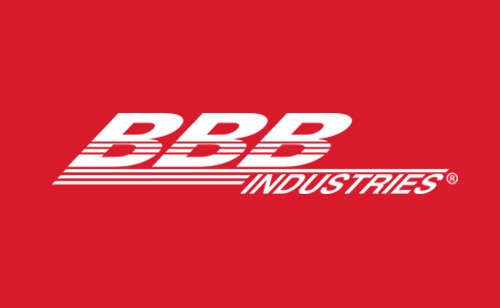
Blog
Sustainable Solutions for the Automotive Industry
Creating Sustainable Solutions in the Automotive Industry
Industrial production has traditionally been thought of as not being environmentally friendly. But now some companies, like BBB Industries, are changing that thought. BBB is utilizing sustainable solutions for decarbonization to drive a circular economy.
Traditionally, our industry has relied on materials that may harm the environment. But BBB is focused on preventing unnecessary waste and keeping material at their highest value for as long as possible.
How is BBB a sustainable leader? Let’s take a look:
Recycling Corrugated Cardboard
While recycling has always been a crucial element of cardboard production, it is more important than ever to keep up with the demand and save trees.
Corrugated cardboard is a lightweight and sturdy way to ship products. Over 90% of American products are packaged with corrugated cardboard, and sometimes cardboard inserts help to stabilize a product during shipping.
Recently, the BBB’s steering team noticed dozens of boxes clutering their production facility. So, they set out to find a sustainable solution for these boxes.
Instead of sending these boxes to be recycled, employees thought it would be best to give them a second use. Now, these boxes are not only recycled at this facility, but they are used as cardboard inserts to ship products. There is no longer the need to ship the boxes to be recycled or purchase new cardboard inserts. This saves 273 acres of forest annually that will not be harvested to meet the equivalent annual amount of CO2 reduction from this project.
Saving Paper
A portion of the 17 million parts that BBB produced in 2022 were Hydraulic power steering rack & pinions, power steering pumps, and power steering gears. To help in the installation of these parts, associated information sheets are provided.
There were 4 million information sheets printed each year. 4-million sheets of paper! Scaled across all hydraulic products, this was a significant cost for the company and the environment. The team decided to utilize an existing QR code on the product that would direct the customer to an online landing page. This page details part-specific technical bulletins, videos, installation instructions, and critical procedures, maybe even more than the customer needs. The transition away from 4 million sheets of paper not only saves money but also avoids 17 metric tons of paper production emissions. This is the same quantity of avoided emissions as taking 40,000 miles off the road, not to mention the vast amount of waste kept out of the local landfill.
Rethinking Chemicals Used in Cleaning Brake Calipers
The chemicals procurement group at BBB plays a crucial role in reviving worn and broken automotive parts at the Brake Caliper production plant in Reynosa, Mexico. At the site, thousands of brake calipers are sustainably manufactured each year to keep vehicles on the road and to ensure these components don’t go into the waste stream.
When a worn brake caliper, referred to as “core”, is brought back to BBB facilities, it can be referred to as “dirty”. These cores must be cleaned and prepared for disassembly, cleaned again, and inspected to understand what portions of the core need to be replaced before reassembly and testing. A lot of chemicals are used at this facility to clean parts. The chemicals procurement team found a German company, Kluthe that manufactures sustainable chemicals specifically for the core cleaning process. This organization ensures that the chemicals provided are high performing and environmentally focused.
At the beginning of June 2023, the braking process transitioned away from using hazardous chemicals to implementing substances that are not hazardous, difficult to dispose of, or environmentally harmful. This transition opened the door for the core processing team to not only use 60% fewer chemicals per year in the cleaning process but also avoid hazardous waste.
Using Solar Panels to Power Manufacturing Plant
TERREPOWER is a division of BBB that services the electric vehicle, energy storage and solar markets across both North America and Europe. Its facility in Sparta, Tennessee is partially powered by a solar farm on its property.
The solar farm provides this facility with an average of 39% of its monthly power needs, saving the plant significant electricity cost and lowering the plant’s emissions. Not only does this keep the post-consumer panels out of the landfill and bring cost savings to the site, but it also avoids emissions from entering the atmosphere each month. That is the equivalent of taking 655,000 miles off the road or avoiding the emissions of 50 homes’ electricity for a whole year!
Using Sustainably Manufactured Electric Vehicle (EV) Batteries
Electric vehicle production is taking center stage. Material sourcing, waste management strategy, and carbon intensity across the full product lifecycle must be addressed to ensure a sustainable electric vehicle transition. The challenges of high material demand, waste management, and production can be alleviated with sustainable manufacturing. As we transition to a cleaner form of transportation, we must consider a cleaner form of production, one that releases minimal emissions into our atmosphere. Though any solution does present its challenges it is important to consider any options that lead to a successful transition to electrification across the transportation industry.





